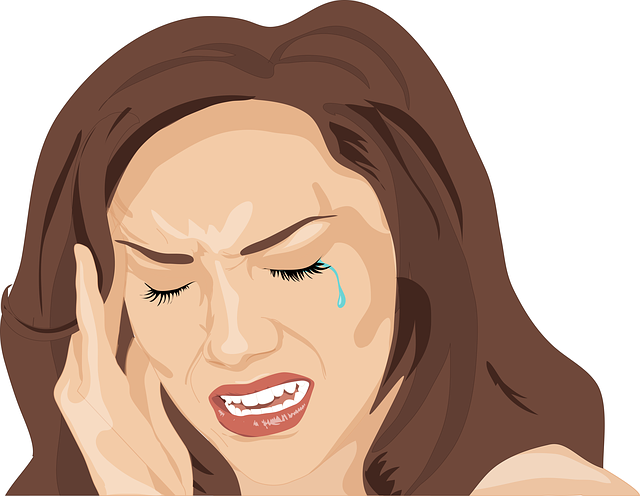
Image Credit: Pixabay
So, you’ve been experiencing persistent headaches and have ruled out the usual causes? Perhaps a visit to your dentist can shed some light on the source of your pain.
Bruxism
You may be diagnosed with bruxism. This condition is defined as teeth grinding and jaw clenching- usually, while you’re not even aware of it, like during sleep.
The sensation of pressure and tightness around your head can be caused by muscle strain, particularly the muscles of the temporomandibular joint (TMJ). This is the hinge joint that attaches your jaw to the skull and it has bands of supporting muscles.
Actions like chewing, clenching or grinding your teeth may tighten these muscles causing referred pain to the head. Other areas that may be affected by pain by bruxism are the shoulders, ears, and teeth.
Causes of bruxism
The triggers for teeth clenching can be one or more of the following:
- Sleep disorders: certain conditions like snoring and sleep apnoea have been found to occur in patients at the same time as bruxism.
- Lifestyle choices: smoking, excessive caffeine, and alcohol consumption are found to cause jaw clenching. Some medications, such as particular types of antidepressants, may also spark bruxism.
- Stress: a majority of sufferers experience high levels of anxiety which cause night-time jaw tension. Emotions like anger and frustration also contribute to the maelstrom of stress which, in turn, causes jaw grinding.
- Family history: clenching your teeth while asleep runs in families! If you experience this, the chances are that other members of your family do, as well.
- Other conditions: ailments like Parkinson’s, dementia and epilepsy can also increase the likelihood of bruxism.
Is it easy to spot?
- Your dentist can easily see the evidence in your mouth if you clench your teeth.
The possible signs are excessive wear on the teeth. Teeth surfaces will appear flattened, chipped and the surfaces will reflect the teeth-on-teeth friction, depending on how long you’ve been tensing your jaw. Tooth enamel will appear damaged.
- Damage to teeth may result in increased tooth pain and sensitivity.
- Earache may result from prolonged tension in the jaw muscles.
- It may cause your jaw to lock in a certain position from jaw muscle fatigue and tension. You will have difficulty opening and closing your mouth normally.
- Pain from the jaw muscles may radiate towards the shoulders, neck and even face.
Is it treatable?
Once the dentist has determined the possible cause he or she will recommend possible treatments.
- Your dentist may advise you to get a mouth guard or an occlusal splint.
The splints are small plastic devices that work by holding the teeth of the upper and lower jaw in a position to prevent friction and subsequent dental damage. They will also decrease unconscious jaw muscle activity thus reducing jaw tension and the clicking and grinding noises. Occlusal splints are also known as bite plates.
- Mouthguards work by protecting your teeth. There are many mouthguards options available. These can be custom-made to fit your mouth, or you can purchase one without specialist fitting.
- You can learn how to properly position your mouth and jaw- your dentist can assist you with this.
- In instances where the damage is severe, your dentist will recommend using crowns to fix damaged teeth or to reshape teeth surfaces in order to chew food properly.
- You may require a referral to another specialist like a therapist if the cause is anxiety or due to an underlying psychological problem. If stress is the cause, there are many approaches you can take to manage it.
Relaxation techniques, like meditation, can help you control your response to stress.
Your medical practitioner can change your medication- if an alternative is available- if bruxism is a side effect you’re experiencing from your chronic medicine.
What else can you do?
- Since the main cause of bruxism is stress-related, you can start by learning to manage the stress. Find activities that relax you- these may be listening to relaxing music, yoga or other types of exercise, etc. Find what works for you and have some fun!
- Plan dental appointments regularly. Your dentist will pick up any issues before they cause permanent damage to your teeth. He or she may even spot trouble even before you’re aware of your jaw clenching habit.
- If you have a tendency to clench your jaw, avoid drinking caffeine or alcohol in the evening. These may disrupt your normal sleep patterns worsening bruxism.
- Stick to good sleep habits, like getting sufficient sleep. If you experience conditions like sleep apnoea, get help. Once this condition is fixed, the teeth grinding may stop altogether.
- Often the only reason you know you clench your jaw is that it disturbs your sleep partner. The clicking and grinding noises you make can be very noisy and disturb others. Ask your sleep partner to let you know if they can hear any of this.
About The Author:
 Dr. Nabil Mockbil received his DDS in 2001 from Umea University in Sweden, regarded as having the best dentist programme in Sweden for undergraduates. He’s now the founder of Swedish Dental Clinic in Dubai
Dr. Nabil Mockbil received his DDS in 2001 from Umea University in Sweden, regarded as having the best dentist programme in Sweden for undergraduates. He’s now the founder of Swedish Dental Clinic in Dubai




